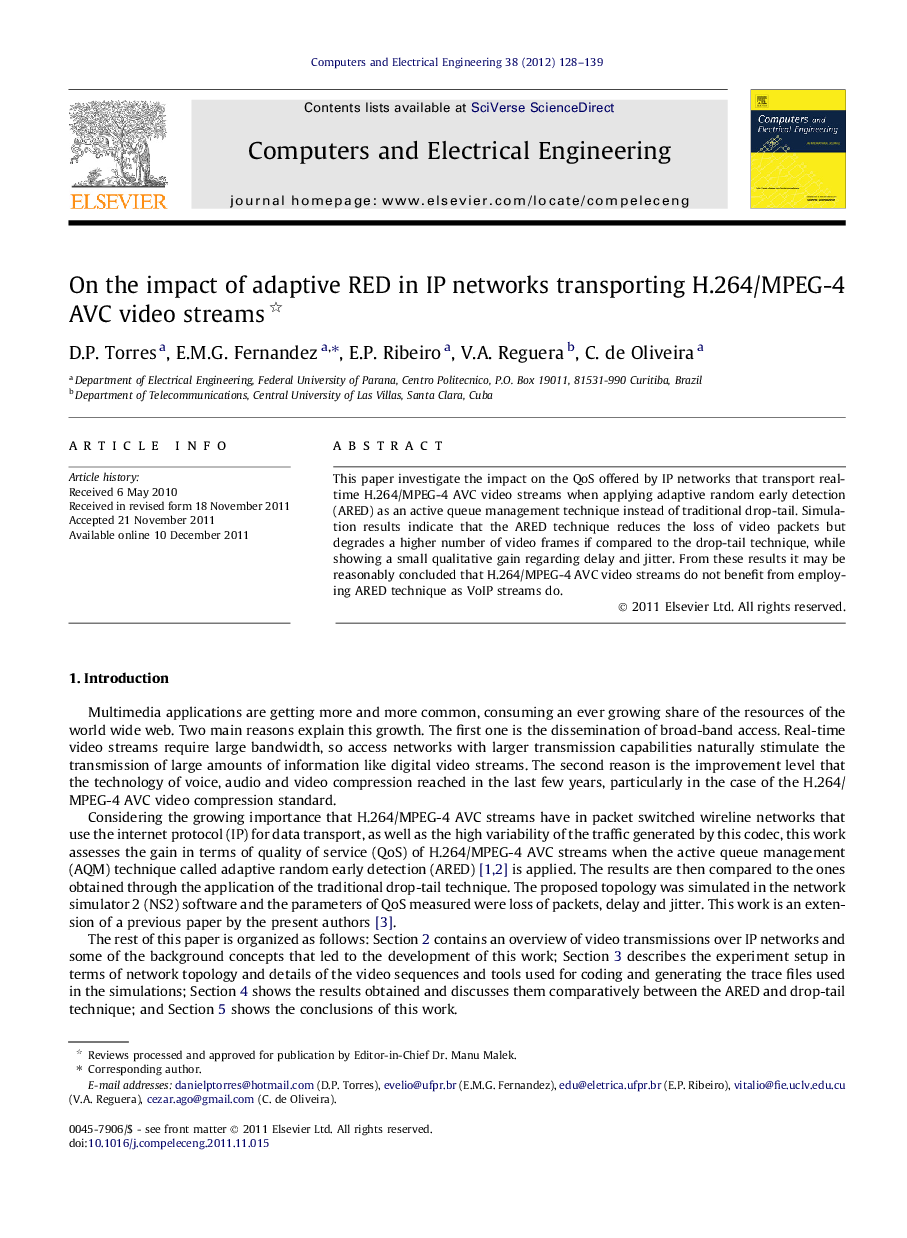| Article ID | Journal | Published Year | Pages | File Type |
|---|---|---|---|---|
| 453776 | Computers & Electrical Engineering | 2012 | 12 Pages |
This paper investigate the impact on the QoS offered by IP networks that transport real-time H.264/MPEG-4 AVC video streams when applying adaptive random early detection (ARED) as an active queue management technique instead of traditional drop-tail. Simulation results indicate that the ARED technique reduces the loss of video packets but degrades a higher number of video frames if compared to the drop-tail technique, while showing a small qualitative gain regarding delay and jitter. From these results it may be reasonably concluded that H.264/MPEG-4 AVC video streams do not benefit from employing ARED technique as VoIP streams do.
Graphical abstractFigure optionsDownload full-size imageDownload as PowerPoint slideHighlights► We assessed the impact of ARED on real-time video streams through simulation. ► Reduction of delay and jitter represent a small gain on video quality. ► ARED reduced packet loss but increased the number of damaged video frames. ► H.264/MPEG-4 AVC video streams did not benefit from employing ARED technique.
